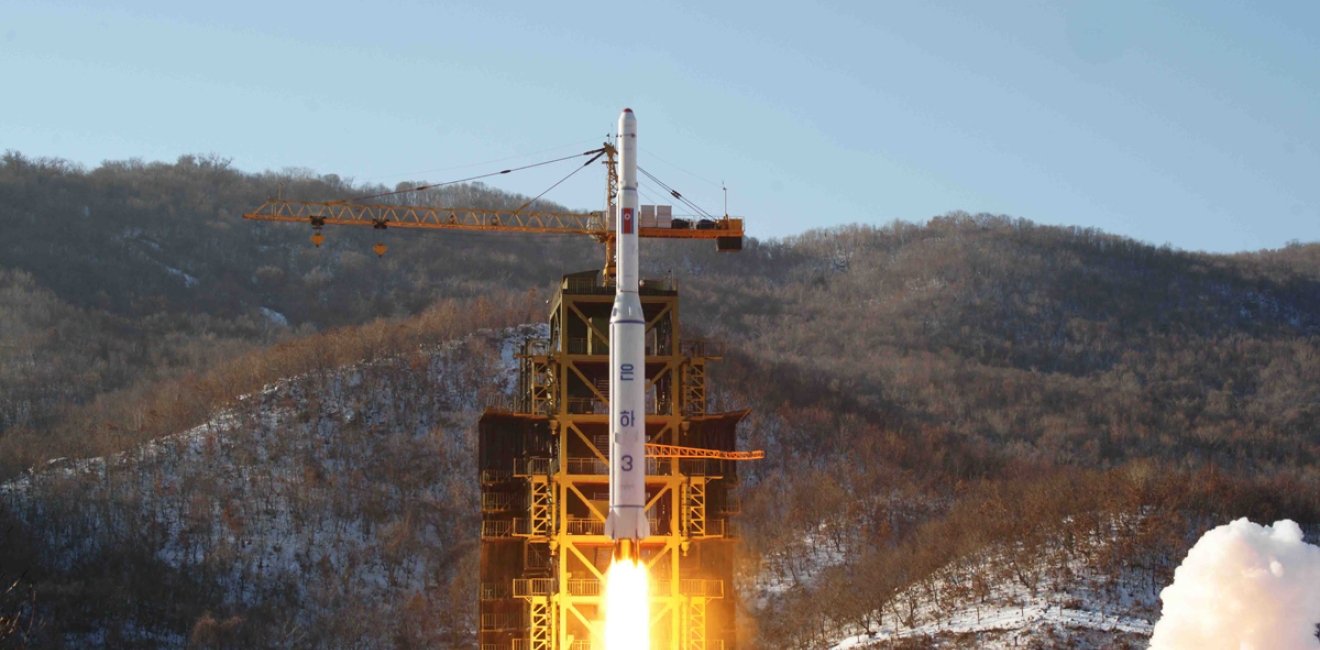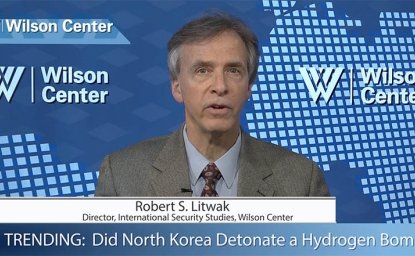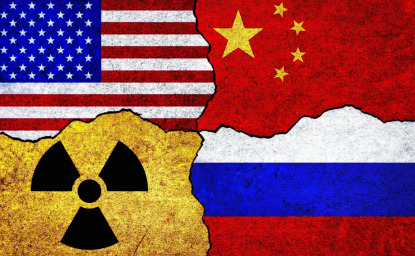For the U.S., Few Options to Address North Korea’s Nuclear Program
North Korea’s claim that it has tested a hydrogen bomb produces another major foreign policy challenge for the Obama administration, which has few means to address it.
North Korea’s claim that it has tested a hydrogen bomb produces another major foreign policy challenge for the Obama administration, which has few means to address it.

North Korea’s claim that it has tested a hydrogen bomb produces another major foreign policy challenge for the Obama administration, which has few means to address it. The issue will bedevil the next president (whoever he or she is); it also points up some interesting contrasts with Iran and how the international community has reacted to the two countries’ nuclear programs.
Iran has received U.S. and international commitments for billions of dollars in sanctions relief over a nuclear weapon it doesn’t possess and, according to U.S. and Israeli intelligence assessments, has not yet decided whether to develop. Tehran accomplished this without giving up the large nuclear infrastructure necessary to develop a weapon should it choose to do so in the future. In part, this is a testament to Tehran’s negotiating skills. But the (bizarre) character of the regime in Pyongyang is also a factor. North Korea has tested nuclear weapons and may already have achieved delivery systems. Meanwhile, its people are isolated, starving, and have little hope for the future. North Korea remains a broken, dysfunctional state without much leverage, except membership in a very small nuclear club.
Both Iran and North Korea have been considered rogue or pariah states. Iran has been able to expand its regional influence and reach without possessing nuclear weapons. Iran relies on its oil resources and points to its rich history and culture. Tehran’s geographic advantages, sitting in a critical area bordering the Persian Gulf, and its allies–which include Russia, Hezbollah, and what’s left of the Syrian regime–have helped it shape developments in its region in a way the hermetic North Korea has not done on the Korean Peninsula.
It’s not about willingness to be a troublemaker. Tehran’s efforts to support terrorism, backing the murderous Assad regime in Syria and Hezbollah in Lebanon, surely rate with Pyongyang’s provocations in its neighborhood.
The North’s announcement quickly became fodder on the presidential campaign trail. The Obama administration–and Democratic front-runner Hillary Clinton–is likely to argue that the nuclear deal has paid off in that instead of two potential nuclear crises, the U.S. faces only one. Critics say thatU.S. weakness contributed to North Korean nuclear ambitions and may note that three of North Korea’s four nuclear tests have occurred during Mr. Obama’s presidency.
For all the tough talk about how the U.S. needs a muscular policy to deal with North Korea, little specificity is likely about what that actually means. Which gets to a key question: If North Korea doesn’t want to trade or leverage its nuclear weapons, what are they for?
The U.N. Security Council condemned the North Korean announcement, but options for addressing Pyongyang’s actions are extremely limited. North Korea’s regime has rejected negotiations like those Iran engaged in over its nuclear program. Kim Jong Un has been eager to boast about his country’s nuclear successes and has made clear that he’s not giving up this program. China is the only nation with real leverage over the Kim regime, because of the assistance it provides to its neighbor, and has called for denuclearization of the Korean Peninsula. But it has been unwilling, so far, to use that leverage on this issue. What China fears most is instability in North Korea that could lead to loose nukes and migration across its border. This may argue for maintaining ties with North Korea, not pressuring or isolating it. So far, China hasn’t proven to be of much help in U.S. efforts to contain North Korea’s nuclear threat.
The opinions expressed here are solely those of the author.
This article was originally published in The Wall Street Journal's Think Tank blog.


The Indo-Pacific Program promotes policy debate and intellectual discussions on US interests in the Asia-Pacific as well as political, economic, security, and social issues relating to the world’s most populous and economically dynamic region. Read more


The Nuclear Proliferation International History Project is a global network of individuals and institutions engaged in the study of international nuclear history through archival documents, oral history interviews, and other empirical sources. Read more


The North Korea International Documentation Project serves as an informational clearinghouse on North Korea for the scholarly and policymaking communities, disseminating documents on the DPRK from its former communist allies that provide valuable insight into the actions and nature of the North Korean state. Read more


The Center for Korean History and Public Policy was established in 2015 with the generous support of the Hyundai Motor Company and the Korea Foundation to provide a coherent, long-term platform for improving historical understanding of Korea and informing the public policy debate on the Korean peninsula in the United States and beyond. Read more



